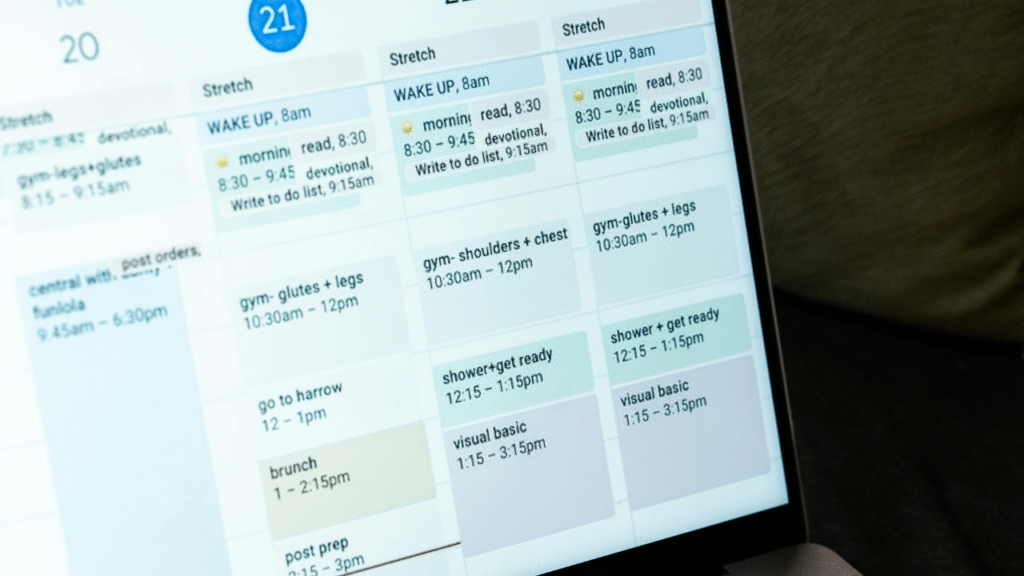In the journey of recovery and maintaining mental health, creating order in our lives can play a crucial role. A disorganized environment and lifestyle can contribute to stress and anxiety, while a well-organized life can provide a sense of control and calm. This article explores how organization can positively impact mental health and support recovery, offering practical tips to help you transition from chaos to calm.
The Link Between Disorganization and Mental Health
A cluttered, disorganized environment can have significant negative effects on our mental well-being:
- Increased stress and anxiety
- Difficulty focusing and decreased productivity
- Feelings of being overwhelmed or out of control
- Poor sleep quality
- Increased risk of depression
For individuals in recovery from substance use disorders, these effects can be particularly challenging, potentially triggering cravings or relapse.
The Benefits of Organization
On the flip side, creating order in your life can:
- Reduce stress and anxiety
- Improve focus and productivity
- Enhance feelings of control and self-efficacy
- Promote better sleep
- Support overall mental well-being
For those in recovery, these benefits can provide crucial support in maintaining sobriety and building a healthier lifestyle.

Practical Tips for Organizing Your Life
1. Creating a Clutter-Free Living Space
A tidy environment can significantly impact your mental state. Try these steps:
- Start small: Choose one area (like a drawer or shelf) to declutter first
- Use the “one in, one out” rule: For every new item you bring in, remove an old one
- Create designated spaces for items
- Regularly declutter and donate items you no longer need
2. Establishing Daily Routines and Schedules
Routines provide structure and reduce decision fatigue:
- Create a morning routine to start your day positively
- Set regular times for meals, work, exercise, and relaxation
- Establish a bedtime routine to improve sleep quality
3. Managing Time Effectively
Good time management can reduce stress and increase productivity:
- Use a planner or digital calendar to track appointments and deadlines
- Break large tasks into smaller, manageable steps
- Use time-blocking techniques to allocate specific times for different activities
- Learn to prioritize tasks and say no to non-essential commitments
4. Organizing Finances
Financial stress can significantly impact mental health. Try these strategies:
- Create a budget and track expenses
- Set up automatic bill payments to avoid late fees
- Regularly review your financial situation and adjust as needed
- Seek professional advice if you’re struggling with debt or complex financial issues
5. Streamlining Digital Life
Digital clutter can be just as stressful as physical clutter:
- Organize email inbox with folders and filters
- Regularly delete unnecessary files and apps
- Use password managers to keep login information secure and organized
- Set boundaries for social media use
6. Meal Planning and Preparation
Organized meal planning can reduce stress and promote healthier eating habits:
- Plan meals for the week in advance
- Create a grocery list based on your meal plan
- Prep ingredients or meals in batches
- Keep a well-organized pantry and refrigerator
Organization in Recovery
For individuals in recovery from substance use disorders, organization can be particularly beneficial:
- Reduces triggers: A organized environment can minimize stress-related triggers
- Supports new habits: Routines and schedules can help establish and maintain healthy habits
- Enhances accountability: Organized tracking of appointments and commitments supports accountability in recovery
- Improves self-care: Structured routines can ensure time for self-care activities crucial to recovery
Understanding Decision Fatigue
Decision fatigue occurs when the quality of our decisions deteriorates after a long session of decision making. This can be particularly challenging for those in recovery, who often face numerous daily decisions to maintain their sobriety.
Organization can help combat decision fatigue by:
- Reducing the number of decisions you need to make daily
- Creating routines that put certain decisions on autopilot
- Providing clear systems for handling common situations
Setting Realistic Goals
When it comes to organizing your life, it’s important to set realistic goals:
- Start small: Don’t try to overhaul your entire life at once
- Be specific: Instead of “get organized,” try “organize my desk drawer this week”
- Make goals measurable: This allows you to track progress
- Set deadlines: This helps maintain motivation
- Celebrate small victories: Acknowledge your progress, no matter how small
Maintaining Organization Long-Term
Staying organized is an ongoing process:
- Make it a habit: Incorporate organizational tasks into your daily routine
- Regular check-ins: Schedule time to review and adjust your systems
- Be flexible: As your life changes, your organizational needs may change too
- Don’t aim for perfection: Remember, “good enough” is often better than “perfect”
How Destination Hope Supports Organization Skills
At Destination Hope, we recognize the importance of organizational skills in recovery and overall mental health. Our treatment programs include:
- Life skills training, including organization and time management
- Cognitive Behavioral Therapy to address thought patterns that may hinder organization
- Mindfulness practices to increase awareness and reduce stress
- Goal-setting workshops to help clients create and maintain organizational systems
- Individual therapy to address personal challenges with organization and develop tailored strategies
We’re Committed to Supporting You on Your Journey
Organizing your life is not just about having a tidy space or a color-coded calendar. It’s about creating an environment and lifestyle that supports your mental health and, for those in recovery, your sobriety. While the process of getting organized can feel overwhelming at first, remember that every small step counts. Each drawer decluttered, each routine established, is a step towards a calmer, more balanced life.
At Destination Hope, we’re committed to supporting you in all aspects of your recovery journey, including developing the life skills necessary for long-term success. If you’re struggling with organization, mental health, or substance use, don’t hesitate to reach out. Our team is here to help you create the organized, fulfilling life you deserve.
Take the first step towards a more organized, calmer life. Call Destination Hope today at 888-989-1479 to learn how our programs can support your journey to recovery and wellbeing.
